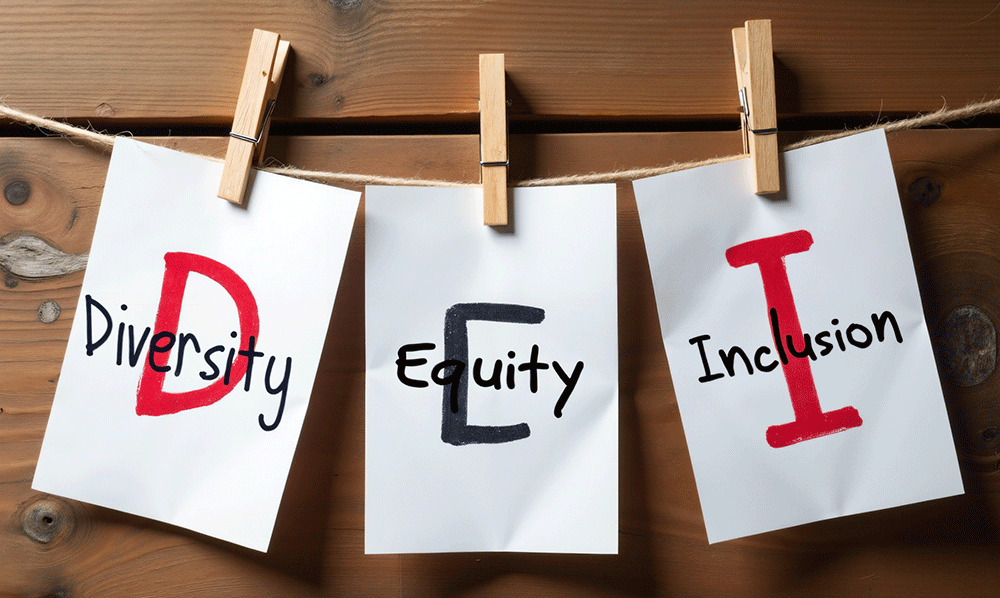The Idaho State Board of Education unanimously approved a resolution Wednesday that significantly cuts back diversity, equity, and inclusion efforts at four-year state colleges.
The draft resolution, which was introduced on Nov. 21 and revised on Dec. 18, defines DEI as “any approach that prioritizes ‘personal identity characteristics’ (race, color, sex, sexual orientation, national origin, religion, or gender identity) over individual merit.” It says it aims to “ensure that no student resource or student success center serves students based on DEI ideology” and “no student resource or student success center serves students based on DEI ideology.”
The resolution also bans colleges from requiring students and employees to share their preferred pronouns and prohibits the consideration of personal identity characteristics in education and hiring decisions.
RELATED ARTICLE: The Best and Worst States for Racial Equality in Education
An accompanying guidance document promises the resolution won’t conflict with accreditation requirements or Title IX requirements for athletic programs. It also says it won’t affect programming for Native American, first-generation or low-income students, or students with disabilities and veterans, according to Inside Higher Ed.
Joshua Whitworth, executive director of the State Board of Education, said the resolution is worded to target “political ideology” that can be a “distraction”—not diversity, which “is a good thing.”
“The path forward is really about making sure students holistically are supported and have their level of services—regardless of where they come from, their identity and the difficulties that they have,” Whitworth continued. “Whatever they need in support to be successful and have a successful career, that our institutions will be wrapping those student services around them.”
The impacted colleges — Boise State University, the University of Idaho, Idaho State University, and Lewis-Clark State College — have until June 30 to comply.
Idaho State Colleges Make DEI Changes Ahead of Vote
Last week, Boise State announced the abrupt closure of its Gender Equity and Student Equity centers, according to Higher Ed Dive. The school will replace them with the Student Connections and Support Center.
Boise State President Marlene Tromp expressed concern that discontinuing the centers would make students and other community members feel devalued.
“It grieves me very deeply that, for many years, our work to support and serve our students so they can be academically successful has been profoundly misunderstood and misconstrued,” she told board members.
RELATED ARTICLE: How Eliminating Affirmative Action and DEI Will Impact Campus Safety
Last month, Idaho State announced it would restructure its Office of Equity and Inclusion and rename it the Office of Equal Opportunity. President Robert Wagner said the school is also dissolving its Diversity Resource Center and Gender Resource Center and instead integrating those resources into broader student support services.
Wagner told the board Wednesday that the school acted ahead of its vote so it could make decisions it could control.
“We have not done away with programs,” he said. “What we are doing is reorganizing where those programs originate from and who is administering those programs.”
The University of Idaho also recently informed its employees that four of its student centers — the Black/African American Cultural Center, the Women’s Center, the Office of Multicultural Affairs and the LGBTQA Center — would all close.
Prior to Wednesday’s vote, University of Idaho President C. Scott Green told the board that its students value the centers and groups that will no longer be allowed under the policy change.
“These students often have a lot of the same issues, and they can help each other through them — that’s why those programs are there,” he said. “We all recognize the broader national-state political dynamics that our Board of Regents is addressing. We are disappointed, but not surprised, that it has come to this given what has happened in other states.”
Other States Limiting DEI Initiatives in Public Schools
Idaho is among six states that passed new laws this year limiting DEI efforts in higher education, according to Inside Higher Ed. In March, Idaho Governor Brad Little signed a bill that prohibits public higher education institutions from requiring diversity statements from prospective students or employees.
Since 2023, 12 states have signed anti-DEI legislation into law, according to the Chronicle of Higher Education. In May 2022, Florida Governor Ron DeSantis signed a bill banning the use of tax dollars to fund DEI initiatives at public state schools.
Texas Governor Greg Abbott also signed a bill in June 2022 banning DEI offices at public schools and universities in the state. Several weeks later, the Supreme Court struck down the affirmative action programs that have sought racial equity in college admissions for the past twenty years.
How DEI Helps with Campus Safety
According to recent findings from he Center for Collegiate Mental Health at Penn State, students who experienced some form of discrimination showed significantly higher rates of distress across many categories related to mental health and well-being, including depression and anxiety.
There is also a direct correlation between inequity and campus safety. A national dataset of over 680,000 students revealed that 16% of students of color indicated the use of alcohol by other students on campus has made them feel unsafe or unwelcome, which is 23% higher than the general student body.
RELATED ARTICLE: Lawsuit: Harvard Legacy Admissions Practices Disadvantage Students of Color
“Conversely, feelings of belonging are linked to increased academic attainment, retention, and improved mental health among undergraduate students,” Rob Buelow, general manager of education at Vector Solutions, wrote in a contributed article on Campus Safety. “All of this is to say, without DEI programs or related initiatives in place, higher ed institutions place the academic performance, mental health, and safety of their most vulnerable students at risk.”
In the article, Buelow also shared his thoughts on why DEI is important in K-12 schools and how the Supreme Court’s 2023 reversal of affirmative action will impact higher ed and K-12 campuses. Read it here.













